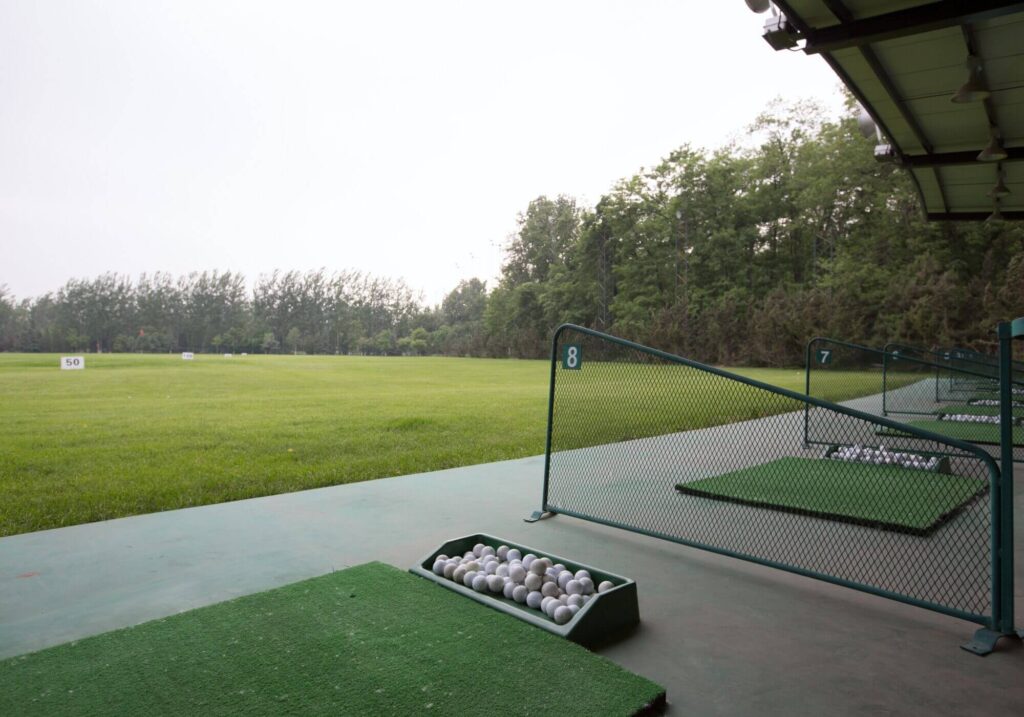5 Signs Your Golf Practice Is Hurting Your Game (And How to Fix It)
Hey there, fellow golf enthusiasts! Remember those carefree days on the range when you could hit balls all afternoon? Ah, good times! Well, fast forward a few years, and life gets busy, right? I learned that just a focused 20 minutes can be way more beneficial than wasting hours on mindless swings.
If you find yourself spending a ton of time at the range but not seeing those improvements, you’re not alone. Many of us amateurs struggle with this dilemma. But don’t worry; I’m here to help you discover if your practice is actually putting a damper on your game. Let’s dive into five key indicators that your practice might be doing more harm than good, along with some fixes that can change your golfing life.
1. Your Good Shots Don’t Repeat
We’ve all been there—one moment you’re striking the ball perfectly, and the next, you’re slicing it into the rough. If the good shots feel more like flukes than a result of your practice, it’s a sign that consistency is lacking. This usually happens when we’re not paying close enough attention to feedback from our swings and the ball’s flight.
Fix It:
Try this simple drill: put down an alignment stick or draw a line just ahead of where you’ll hit the ball. Your divots should consistently start after this line to ensure solid contact. Focus on this during practice, and you’ll see those repeatable good shots start to pile up! Check out this video of Bryson DeChambeau helping a junior golfer—it’s a fantastic example of effective practice techniques!
2. You Can’t Find a Rhythm on the Course
At the driving range, it’s all about the rhythm—swing, swing, swing! But that’s not how it goes down on the course. Each shot requires time to breathe, think, and execute. If you find yourself second-guessing on the course, it’s likely because your practice hasn’t accounted for this pause.
Fix It:
Slow it down! Treat at least half of your range shots like you’re on the course. Go through your full pre-shot routine and take that moment to focus. Step in, commit, and let it fly! This will help you keep that calm, collected rhythm during the real deal.
3. You Panic When the Lie Isn’t Perfect
Got a ball below your feet or a tight chip? If these situations freak you out, your practice is way too comfortable. If you’ve only been hitting balls from flat mats, you’re in for a rude awakening when you actually need to adjust for not-so-perfect lies.
Fix It:
Set up a mini-challenge with 10 practice balls placed in different lies: uphill, downhill, etc. Forget about perfect mechanics for a bit and focus on making solid contact from awkward stances. Also, don’t shy away from hitting from the rough—get comfortable with the uncomfortable!
4. You Struggle the Moment You Have to Create a Shot
When you’re faced with a low punch or a high, soft wedge, do you feel a wave of panic? That’s usually because your practice has been one-dimensional, using the same club and motion far too often. If you’re not training creativity, you’re going to struggle in those moments when you need it most.
Fix It:
Incorporate a “shot-making game” every time you hit the range. Pick a target and hit one high, one low, one draw, and one fade. Forget about being perfect; just learn how the ball reacts to your different techniques. This will build confidence when you face those tricky shots on the course.

5. You Don’t Know Why a Good Shot Happened
Have you ever made a great swing and thought, “What the heck did I just do?” If you can’t describe what worked, replicating it will be tough. Without taking the time to reflect on your practice, you might just be going through the motions without truly learning.
Fix It:
After you hit a flush shot, take a moment to note one "feel" that stood out to you. It could be anything from your grip pressure to your swing tempo. Over time, you’ll start to connect these feelings to those good results!
Final Thoughts
Sure, mindlessly whacking balls at the range can be fun, but if you’re serious about improving your game, it’s time to step it up and practice smarter. Remember, you can make big strides in just 20 minutes when you incorporate focused, purposeful work. That’s the secret sauce to making your game withstand the real pressure.
So, next time you hit the range, keep these tips in mind and watch your game improve! Make sure those practice sessions aren’t just about hitting balls but about becoming a better golfer. Happy swinging, folks!


